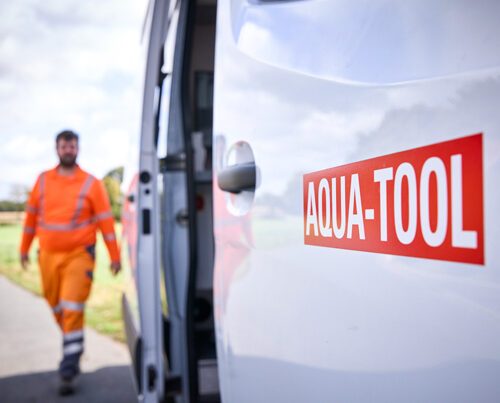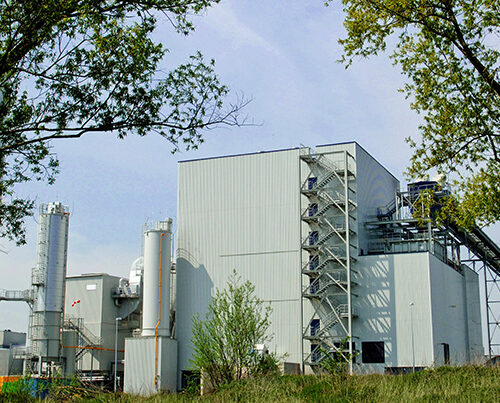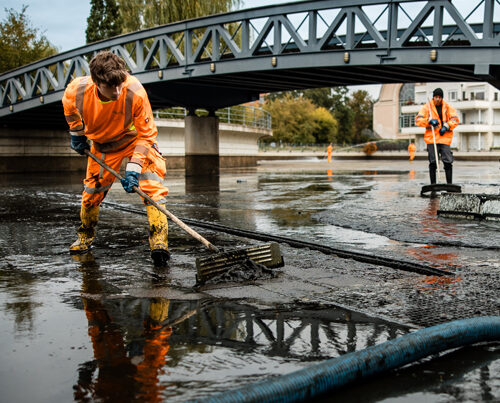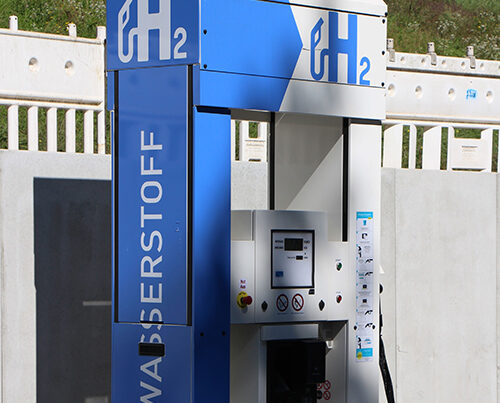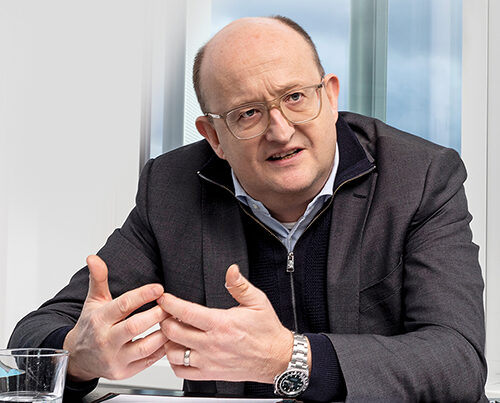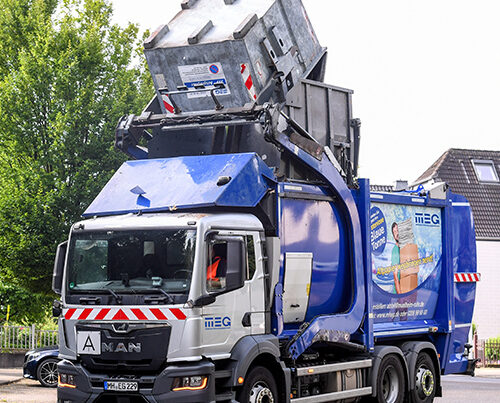REMONDIS Australia will trial one of the world’s first zero-emission waste collection trucks as part of its commercial operations. The trial of the hydrogen-powered truck could be the precursor for a major roll-out of zero-emission heavy vehicles across REMONDIS’ global network and be a catalyst for other fleet businesses to follow suit.
Developed by Hyzon Motors ANZ (Hyzon) in Australia and made available to REMONDIS under an agreement announced in Melbourne, the truck’s fuel cell electric engine relies on hydrogen funnelled from specially made tanks, which combines with air to generate electricity that powers the truck. The Fuel Cell Electric Vehicle (FCEV) technology only results in water vapour emissions.
The truck is scheduled to be trialled in the Illawarra region of New South Wales from mid–2023, the first time such a truck has been trialled under commercial conditions in Australia.
“REMONDIS committing to this trial is a watershed moment as countries around the world try to shift to zero-emission transport outcomes,” REMONDIS Australia Chairman Björn Becker said. “It is a big step to invest in putting a zero-emission waste collection truck to the test in a commercial setting. Although we can’t pre-empt the trial outcomes, we’ve certainly placed a stake in the zero-emission space. A best-case scenario could be gradually replacing our global diesel-powered trucks with zero-emission trucks, which could set the scene for other companies to do the same. At the very least we’ll collect unprecedented information about what it takes to get closer to fleet decarbonisation.”
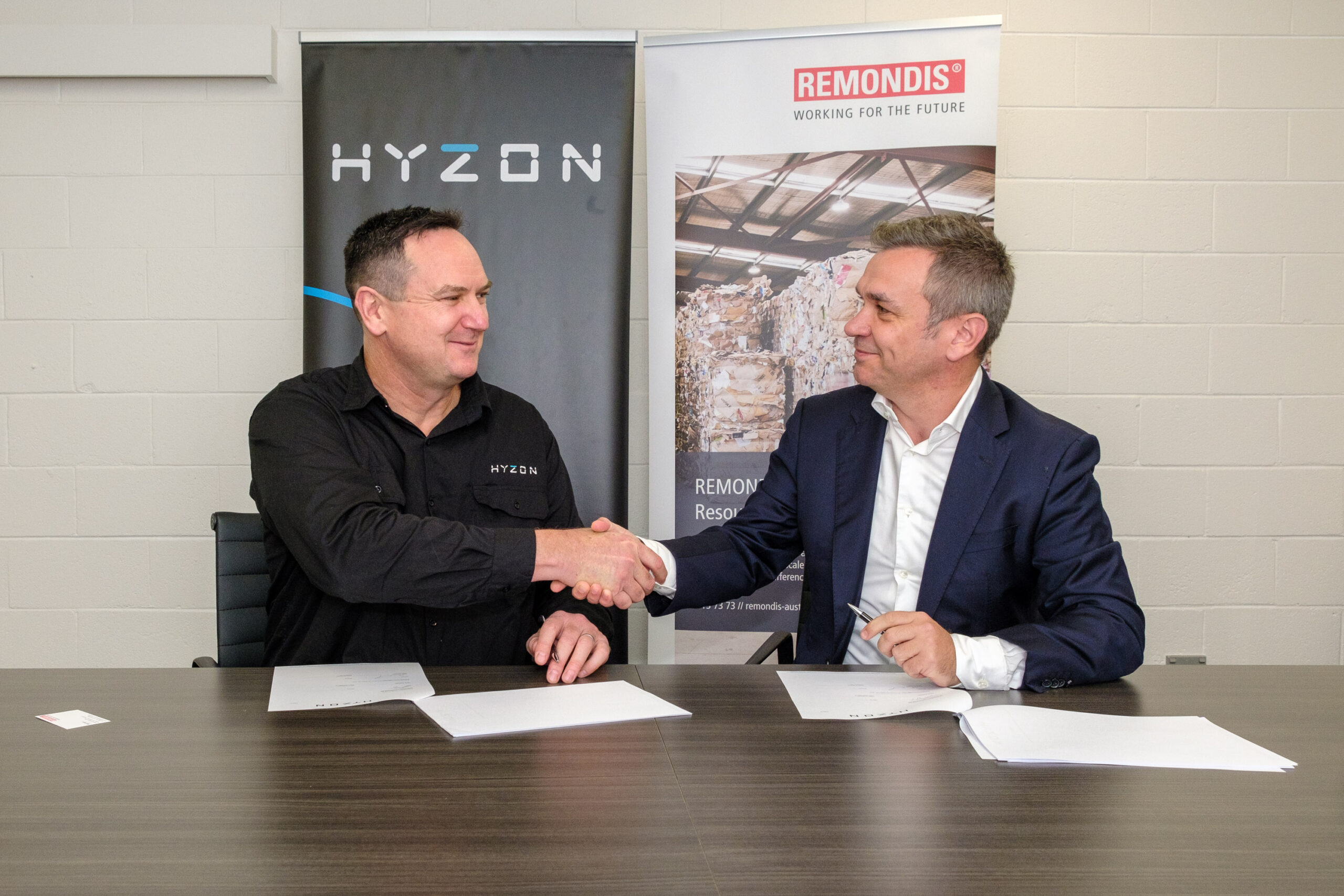
John Edgley, Hyzon President of International Operations, and Björn Becker, REMONDIS Australia Chairman, sign agreements for a commercial trial
“A best-case scenario could be gradually replacing our global diesel-powered trucks with zero-emission trucks, which could set the scene for other companies to do the same.”
REMONDIS Australia Chairman Björn Becker
REMONDIS NSW South Coast Region Manager Chris Wade said the goal was to have the zero-emission truck match the capabilities of same-sized diesel-powered trucks. “Efficiency is critical when it comes to waste collection, so we’ll be paying close attention to how the truck performs compared to our diesel trucks,” Mr Wade said. He added that refuelling will be conducted at the Coregas facility at Port Kembla and is expected to take about 20 minutes.
Hyzon’s heavy-duty garbage truck has been designed against the industry benchmark of a 200-kilometre range and 1,500 bin lifts per working day. Last year, Hyzon announced the development of Australia’s first purpose-built assembly plant in Melbourne’s South-East to manufacture hydrogen-powered trucks, including this one.
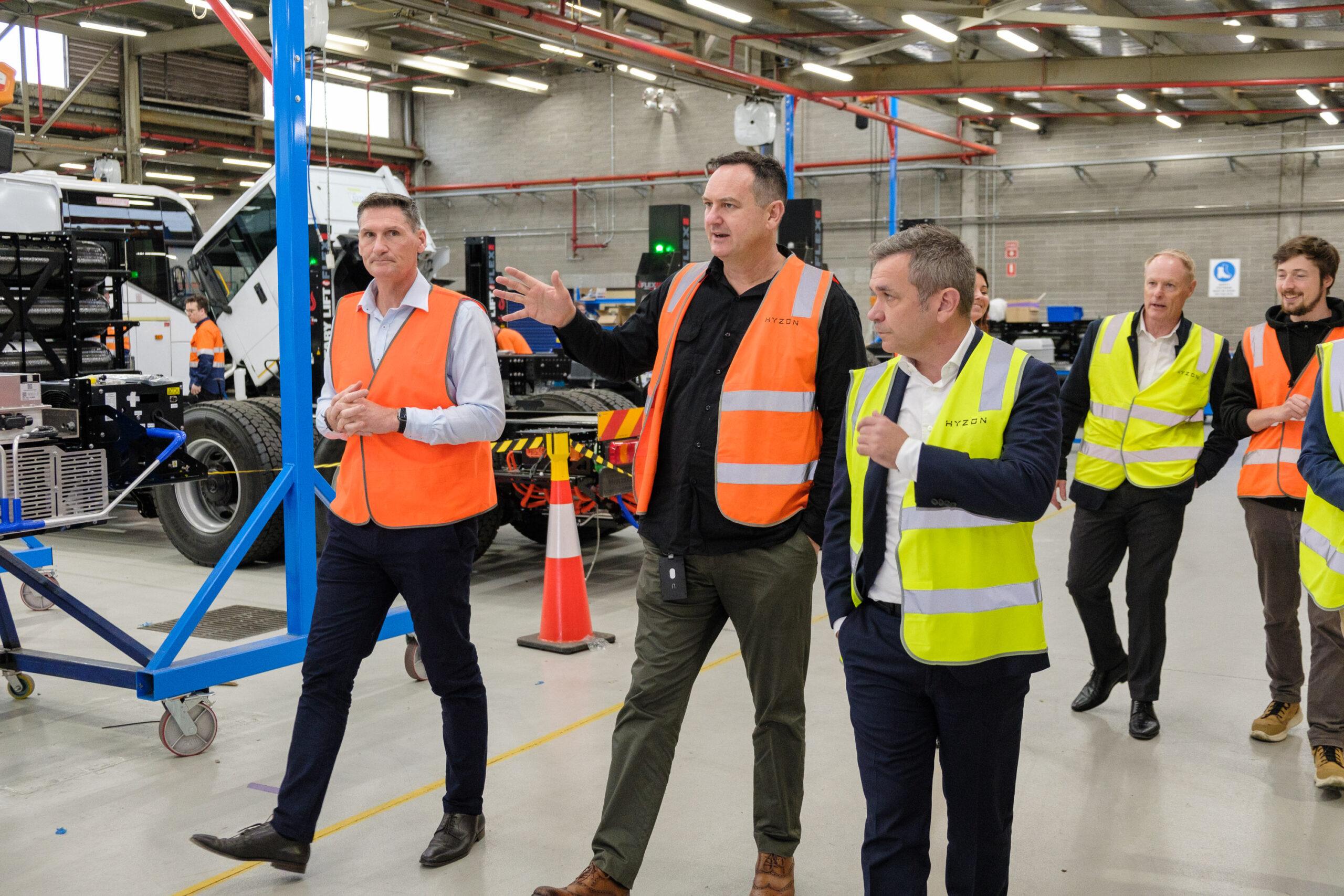
Tour of Hyzon’s Melbourne facility
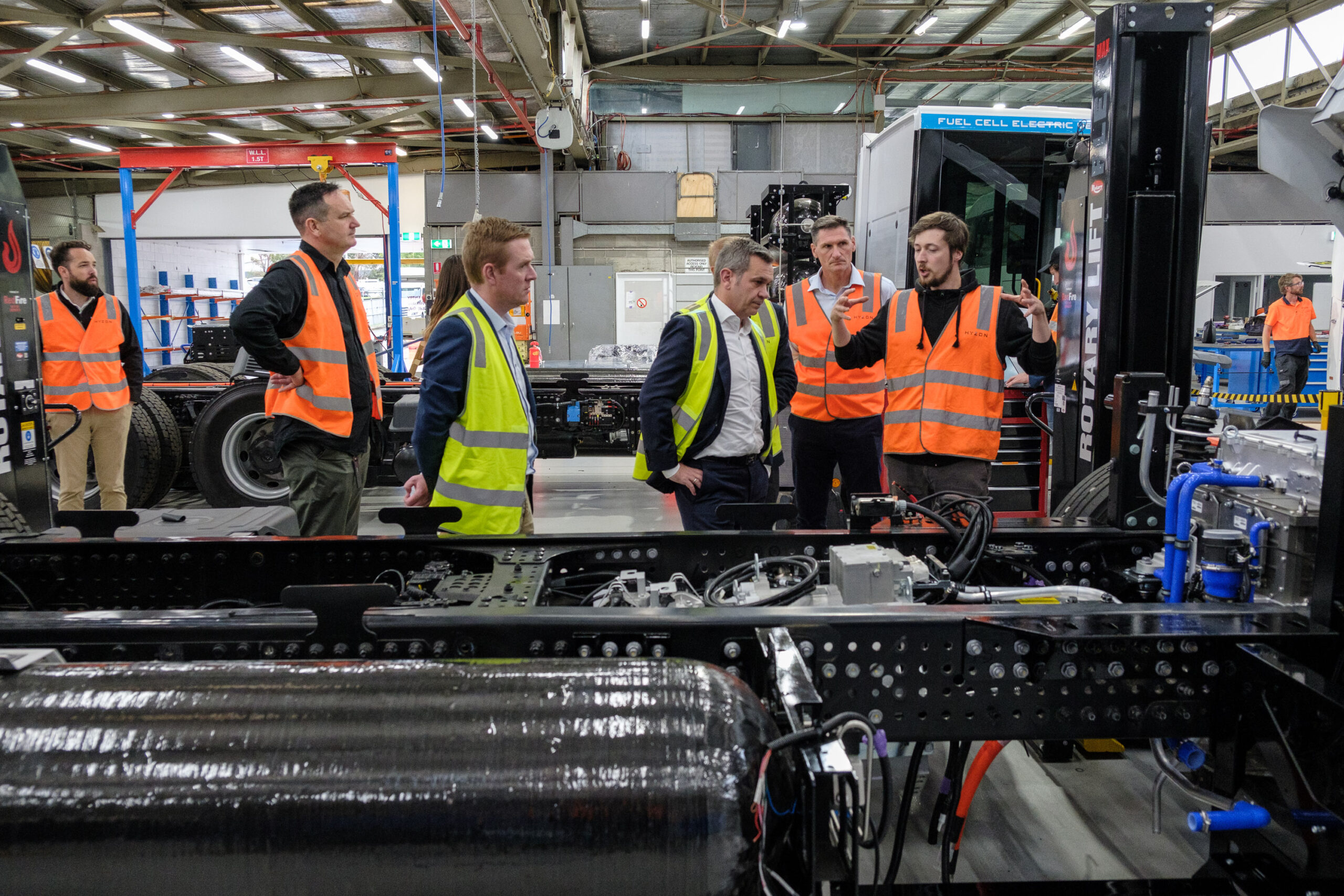
Hyzon President of International Operations John Edgley said the trial was an Australian home-grown success story. “It speaks volumes that REMONDIS, a global leader in the circular economy, has taken the lead by putting a zero-emission waste collection truck into commercial operation,” Mr Edgley said. “This particular truck – which we call our Heavy Rigid truck – has been developed in Australia as a global platform. It is adaptable for international markets with a multitude of vehicle use cases such as garbage compactors, tilt trays and flatbed trucks.”
The truck has been developed in partnership with Superior Pak, Australia’s leading manufacturer of world class mobile waste collection and compaction equipment.
Image credits: © REMONDIS







